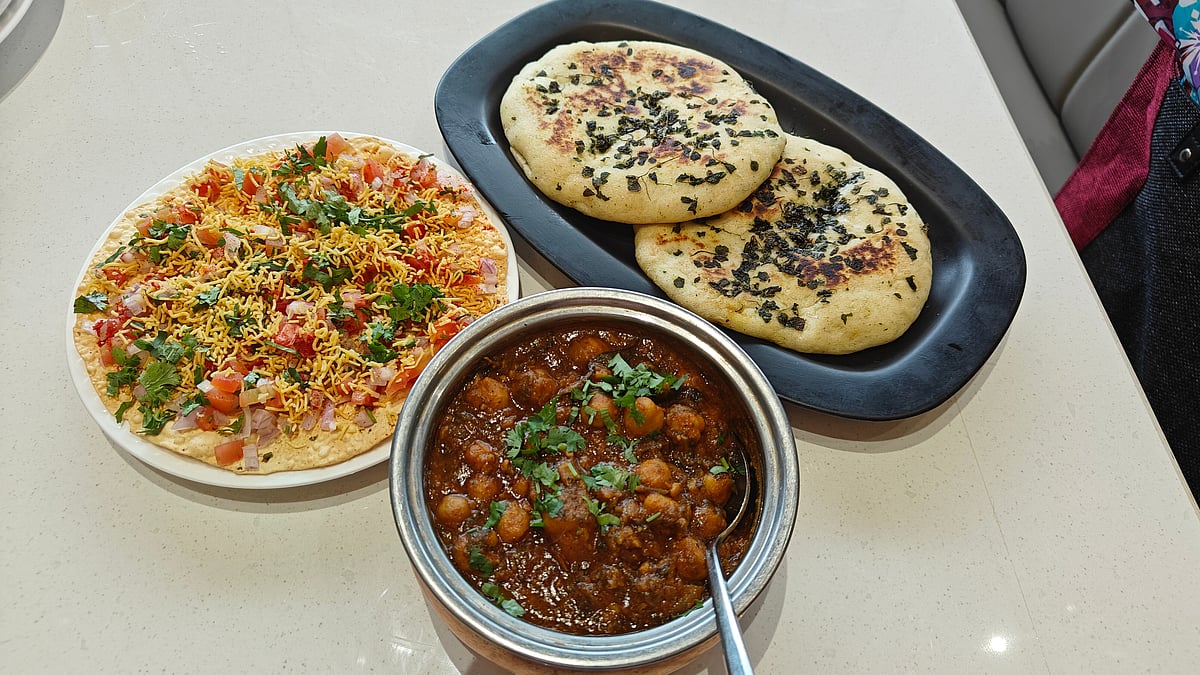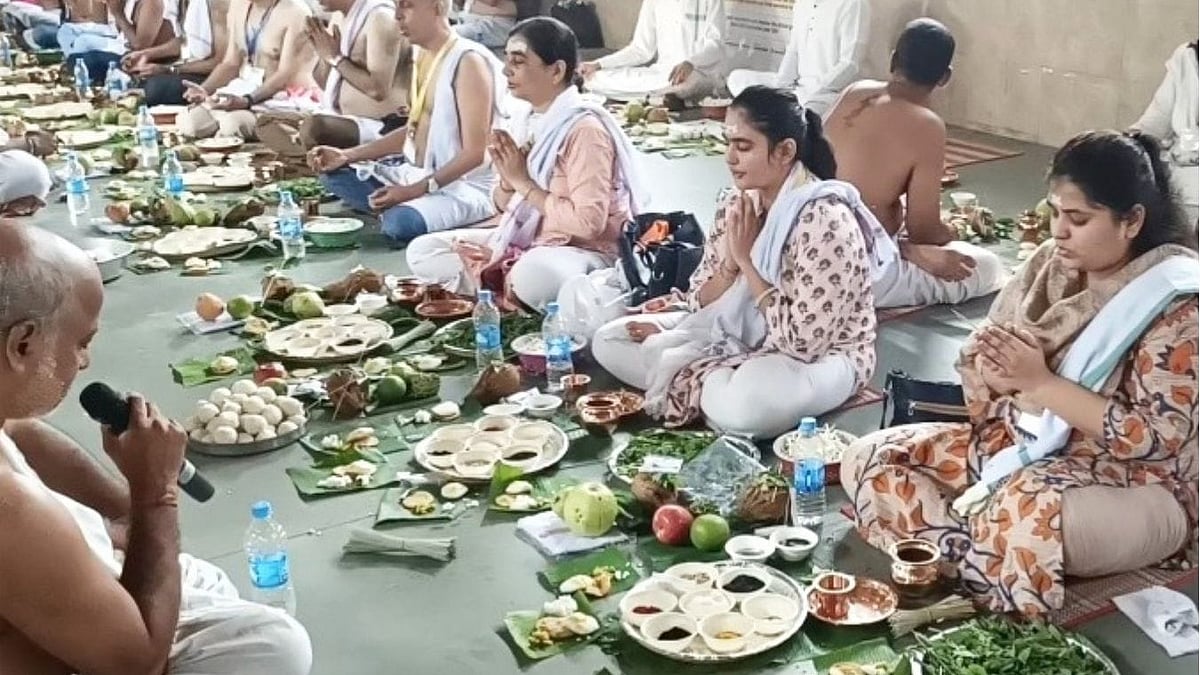Travel is booming these days. A big role is played by the young demographic (18-28) who are travelling solo or in a group. This trend is worth looking into. Pratham Ahuja, a Travel Enthusiast based in Gurugram, started travelling due to curiosity and restlessness. “There’s something raw and honest about being alone in a new place, where every decision, every mistake, and every moment of wonder is entirely yours. Each experience has shaped me in quiet, unexpected ways. Solo travel has taught me that solitude is a powerful teacher.”
The reasons
Rikant Pittie, CEO and Co-founder of EaseMyTrip, mentions the reason being a ‘desire for self-discovery, independence, and spontaneity. Many in the 18–28 age group are using travel as a way to reconnect with themselves or enjoy the freedom of making their plans. Add to that a growing focus on experiences over possessions, and it's no surprise that this generation is embracing travel as a lifestyle rather than a luxury.”
According to him, bigger budget options paired with flexible available travel tools make it easier for them to hit the road with friends or solo.
Pratham feels many youngsters are travelling solo nowadays to take a break from stress or feeling stuck. "It’s not always perfect. Sometimes it gets lonely, plans go wrong, and it can be scary. But through all that, we learn a lot. Travel gives us the space to grow, to breathe, and to feel free in a way that daily life sometimes doesn’t.”
He also feels his generation is travelling solo to search for experiences, explore the world and discover themselves. He thinks travel is like a way to grow and not go.
According to Saurabh Gahoi, Senior Vice President of Ramee Group of Hotels, a cultural shift has happened due to a desire for experiences over possessions. “Affordable flights, better connectivity, flexible work or academic schedules, and digital tools like travel apps have also empowered this age group to travel more frequently and confidently.”
The digital world, especially social media platforms like Instagram and YouTube, is big in normalising travel, says Sandeep Arora, Director of Brightsun Travel, India. “Plus, the rise of remote work and flexible academic schedules gives them the freedom to explore the world in between major life commitments. Budget travel has also become more accessible, thanks to low-cost airlines, hostels, shared accommodations, and online travel deals, making travel a lifestyle choice for many.”
The types
Pardeep Kumar Siwach, Deputy General Manager at Mayfair Spring Valley Resort, Guwahati, sees a clear shift towards experiential travel. "Many prefer meaningful stays and love exploring lesser-known, offbeat places instead of crowded tourist spots. Group trips with friends, colleagues, or even ‘frolleagues’—a mix of friends and co-workers—are becoming more common.”
Siwach thinks of travel choices as being driven by a need for real experiences, mental well-being and deeper social connections. The trips are all about growth and lasting memories.
Arora talks about a rise in cultural travel. Many are opting to volunteer, explore local cuisines, check festivals and live with locals to get real insights into different lifestyles. "Interestingly, digital detox and wellness retreats are gaining popularity too, as more young adults seek to unplug from their screens and recharge through yoga retreats, meditation, or quiet stays in nature.”
Gahoi too thinks the same. “They prefer immersive experiences that allow them to connect with local communities, discover hidden gems, and engage in activities like food trails, hiking, or cultural events. Sustainability and affordability are key drivers, along with a strong inclination towards ‘Instagram-worthy’ destinations.”
“Young travellers today are redefining the way India travels,” states Pittie. “From solo backpacking trips through the mountains to extended workations in coastal towns, their choices reflect a strong desire for freedom, adventure, and meaning. There’s been a notable shift towards offbeat, nature-focused, and sustainable travel, with eco-stays and community-driven experiences gaining traction. Many are also leaning into adrenaline-packed experiences like trekking, paragliding, or diving, while others are choosing to slow down with immersive cultural stays or wellness retreats.”
From the thrill of the unknown to the comfort of a new routine, the generation wants travel to match their values and lifestyle, he mentions.
Travel industry impact
Arora sees travel companies offering more tailored experiences for the 18–28 segment like youth hostels, group adventure tours, and work-travel programs. “It combines exploration with meaningful engagement. The industry’s approach has become increasingly digital-first, as young travellers prefer to plan and book trips through mobile apps and social media platforms. Also, this generation is more eco-conscious, encouraging the travel industry to adopt sustainable practices. These changes not only cater to younger travellers but are also influencing older demographics to explore more flexible, immersive, and sustainable travel styles.”
Gahoi feels this demographic has made the industry more agile. “Hotels now offer flexible check-ins, co-working spaces, and community-based experiences. The industry has also become more focused on affordability, design-led spaces, and digital booking platforms. For other age groups, this trend brings about better travel ecosystems—improved infrastructure, niche travel experiences, and more awareness about safety and sustainability.”
Pratham sees a shift from luxury to authenticity with many preferring local stays, immersive experiences, eco-friendly options and flexible itineraries. “Older generations are beginning to see travel not just as a vacation, but as a form of self-care and exploration. The idea that you can travel alone, slow down, and still have a meaningful time is no longer just a ‘young person’s thing.’ It’s making travel more personal, more intentional and more accessible for everyone.”
The requirements these days are tech-friendly services and personalised plans, reveals Siwach. “Gen Z prefers real, authentic experiences over standard package tours, and that has pushed hotels and resorts to rethink what they offer. This shift is making travel more inclusive, affordable, and environmentally aware. We’re seeing more focus on eco-tourism, local culture, and community-based experiences. What’s interesting is that Gen Z’s choices are influencing others too. Gen Z has changed the meaning of 'value' in travel, it's no longer just about comfort or cost, but about depth, purpose, and connection.”
Suggestions galore
For a great and safe travel experience, Pittie suggests starting with thorough research of the destination and understanding local customs and travel advisories to avoid shocks. "Especially for solo travellers, staying connected with family or friends throughout the trip adds an extra layer of safety. Choosing secure accommodations with positive reviews and visible safety measures can make all the difference, as can packing smartly and lightly to stay organised and avoid misplacing essentials.”
A non-negotiable suggestion for him is travel insurance. “Responsible travel also means being mindful of others. Being respectful in conversations and honouring personal space helps foster positive connections and leaves a meaningful impact. Ultimately, great travel is about both adventure and empathy—and the best journeys are those where you not only return with memories but also leave behind goodwill.”
Pratham wants young travellers to rank safety by securing essential documents and keeping contact with those back home. “Be mindful of noise, space, and local sensitivities. Support local communities, reduce waste, and leave places better than you found them. Responsible travel is not just safer, it’s more enriching for everyone involved.”
Siwach feels travel must be fun but without disturbing others. “When travellers are thoughtful and aware, the trip becomes better not just for them, but for the people around them too. At the heart of it, travel should be meaningful—for you and for everyone you meet along the way. We, at Mayfair, encourage young travellers to explore freely, but with thoughtfulness, so every journey creates positive memories for both guests and the communities they visit.”
Travel suggestions
Gahoi suggests exploring lesser-known culturally rich and natural places like Udaipur, Bhuj and Munnar in India. "If interested in international travel, emerging hotspots in Oman and Bahrain offer a great mix of heritage and modern experiences. Volunteering trips, eco-tourism, and digital detox stays are great alternatives to traditional travel styles and offer deeper meaning to the journey.”
Arora mentions exploring visa-free or visa-on-arrival countries. “Destinations like Thailand, Indonesia, Nepal, Sri Lanka, Vietnam, and Mauritius offer rich cultural experiences, and beautiful landscapes, and are budget-friendly. These places are ideal for first-time solo or group trips due to easier visa processes and strong travel infrastructure.”
Pittie sees young Indian travellers in 2024 and 2025 increasingly seeking destinations offering a mix of novelty, adventure, and cultural depth. “For those craving snowy thrills and stunning vistas, Gudauri in Georgia is emerging as a winter haven. Closer home, Ladakh continues to be a favourite for solo travellers and backpackers alike, offering an immersive blend of natural grandeur and local heritage. Japan, with its seamless blend of futuristic cities and ancient traditions, is captivating a new generation of travellers interested in both tech and culture. For those looking for an exotic beach escape, Fiji is turning heads for its turquoise waters and coral reefs and also for being visa-free for Indian passport holders.”
Young travellers are changing the travel industry and approach for the better.











